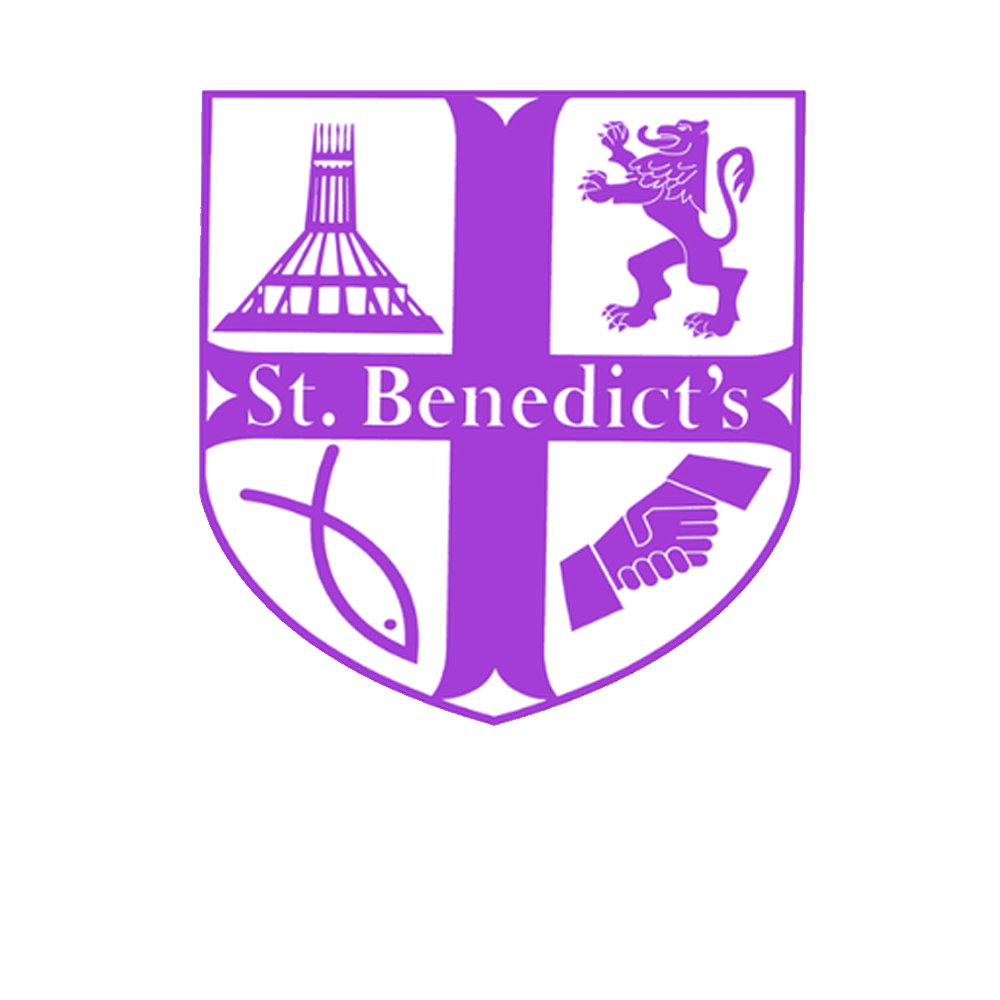Music Curriculum
Intent
We believe music is a wonderfully creative, important subject allowing children to express themselves. We want our children to love music and be inspired to achieve well in listening, composing and performing.
We want to equip them with not only the minimum statutory requirements of the music National Curriculum but to prepare them for the opportunities, responsibilities and experiences of later life. We are committed to putting music on the map here at St. Benedict’s.
We want our children to use the vibrancy of our great city to learn from other cultures, respect diversity, co-operate with one another and appreciate what they have. Music will make an outstanding contribution by providing a strong SMSC curriculum, with British Values and our core values placed at the heart of everything we do. This often feeds into the music curriculum.
We enrich their time in our school with memorable, unforgettable experiences and encourage our children to participate in high-quality extra-curricular activities with a music focus. We firmly believe that it is not just about what happens in the classroom. It is our intent that music will enrich childrens lives and education as many of the skills are transferable across the curriculum. It is about the added value we offer to really inspire our children. We are musicians!
Implementation
At St. Benedict’s we use the Charanga Musical School scheme which is ideal for specialist and non-specialist teachers and provides lesson plans, clear progression, and engaging and exciting whiteboard resources to support every lesson. All requirements of the National Curriculum are covered. We provide opportunities for children to learn through a practical, exploratory and child-led approach. The interrelated dimensions of music weave through the units to encourage the development of musical skills as the learning progresses through listening and appraising, differing musical activities (including creating and exploring) and performing. We provide opportunities for all children to engage in extra-curricular activities and concerts/events. Children from years 3-6 have the opportunity to learn to play an instrument from the woodwind, brass or string family.
Music subject specific characteristics, which we expect the children to demonstrate, have been developed. These characteristics underpin all work in music and form a focal point for display areas and provide a common subject specific vocabulary for staff and pupils. These characteristics are:
- A rapidly widening repertoire which they use to create original, imaginative, fluent and distinctive composing and performance work.
- A musical understanding underpinned by high levels of aural perception, internalisation and knowledge of music, including high or rapidly developing levels of technical expertise.
- Very good awareness and appreciation of different musical traditions and genres.
- An excellent understanding of how musical provenance – the historical, social and cultural origins of music – contributes to the diversity of musical styles.
- The ability to give precise written and verbal explanations, using musical terminology effectively, accurately and appropriately.
- A passion for and commitment to a diverse range of musical activities.
We empower our staff to organise their own year group curriculums under the guidance of our subject leaders. Teachers are best placed to make these judgements. Staff develop year group specific long-term curriculum maps which identify when the different subjects and topics will be taught across the academic year. The vast majority of subjects are taught discretely but staff make meaningful links across subjects. They link prior knowledge to new learning to deepen children’s learning. Our children are taught the right, connected knowledge.
We encourage staff to teach a weekly music lesson. This helps to ensure sufficient time is allocated to music and that musical subject matter can be revisited frequently. We believe that by crafting our curriculum this way, we improve the potential for our children to retain what they have been taught, to alter their long-term memory and thus improve the rates of progress they make.
Impact
Our curriculum aims to be fun and enable the children to express themselves through one of the highest forms of creativity using a universal language. Pupils will be engaged and inspired to develop a love of music, both in lessons and in extra-curricular clubs. The impact of music lessons is that children will be able to perform, listen to, review and evaluate music across a range of historical periods, genres, styles and traditions, including the works of great composers and musicians. The curriculum will enable the children to learn to sing and to use their voices, to create and compose music on their own and with others, have the opportunity to learn a musical instrument, use technology appropriately and have the opportunity to progress to the next level of musical excellence. The impact of the music lessons will also be that children can understand and explore how music is created, produced and communicated, including through the inter-related dimensions: pitch, duration, dynamics, tempo, timbre, texture, structure and appropriate musical notations. The impact of music lessons can be evidenced in teachers’ assessments and skills in music are progressive and build year on year.
Overall, St. Bendict’s pupils will have had the opportunity to develop their talent as musicians, and so increase their self-confidence, creativity and sense of achievement.



